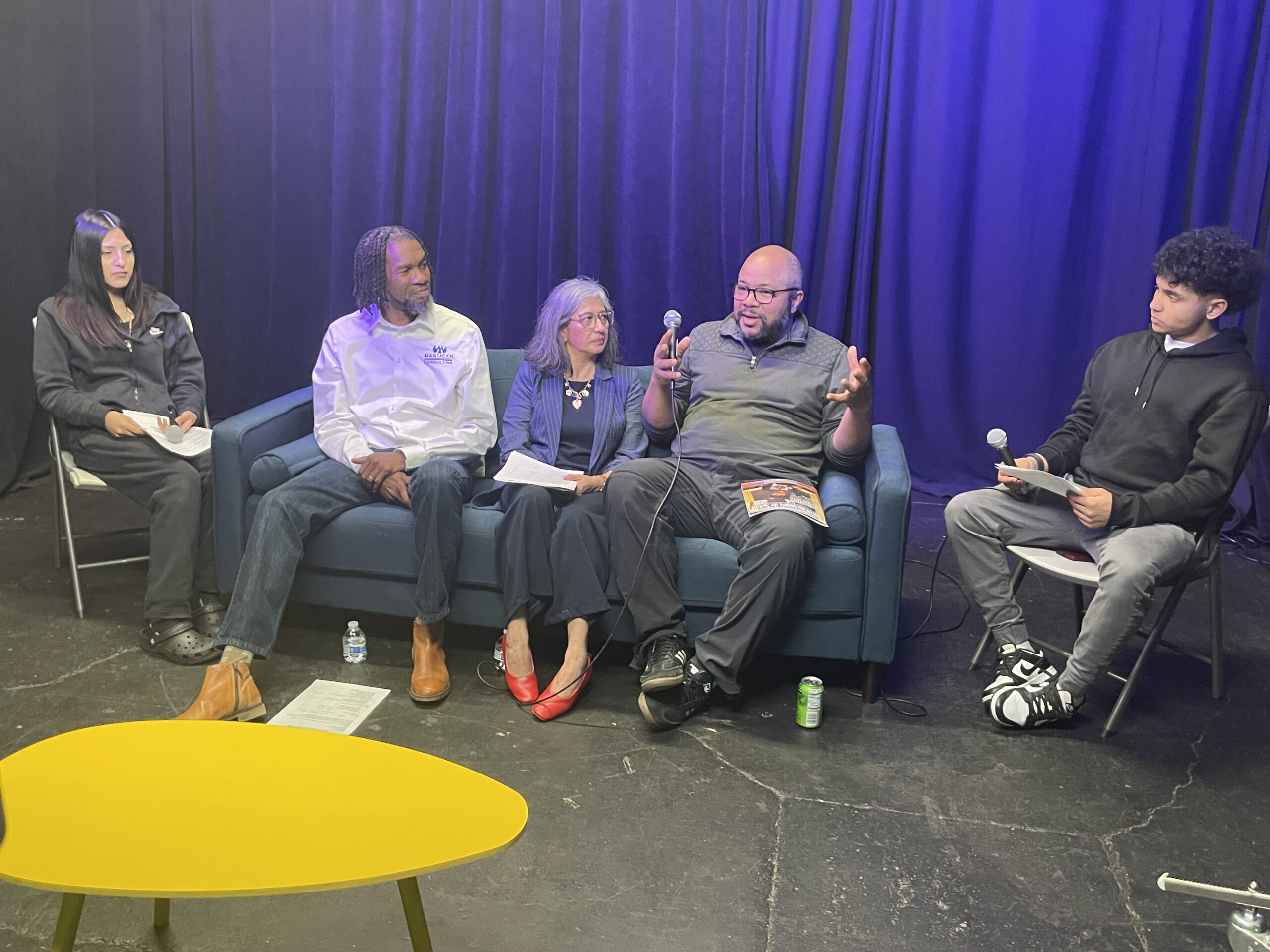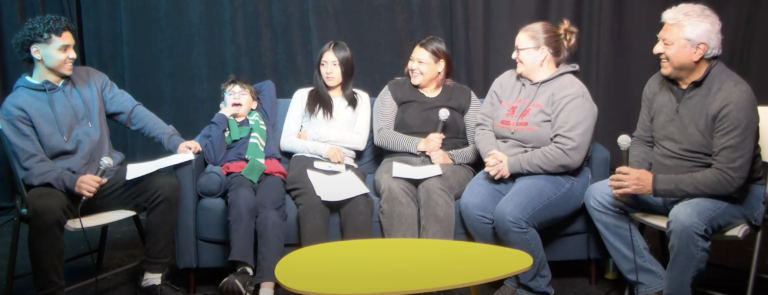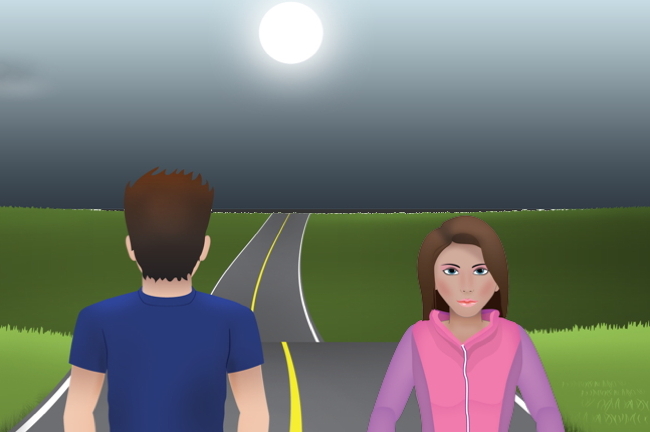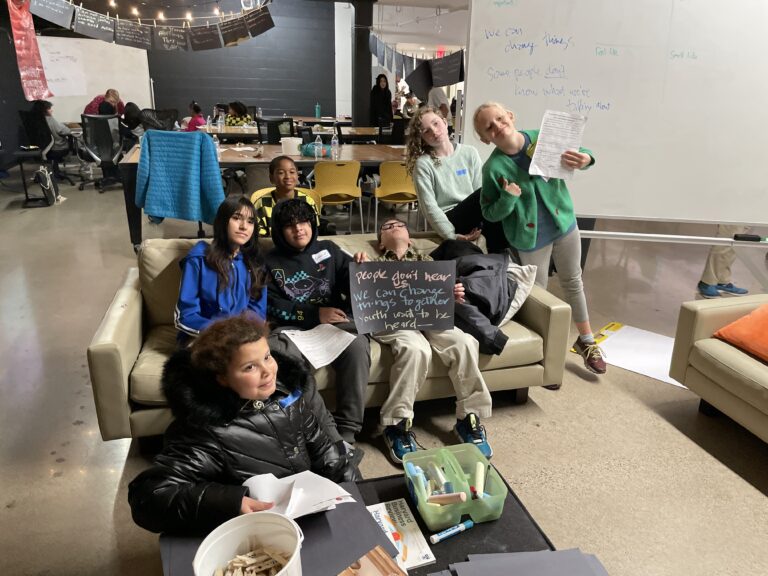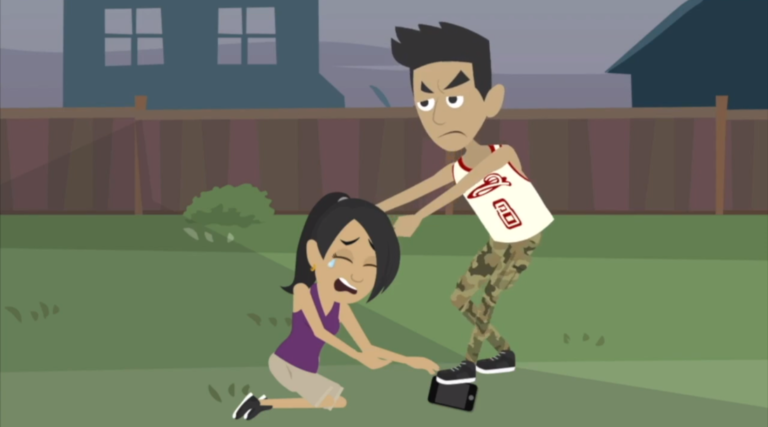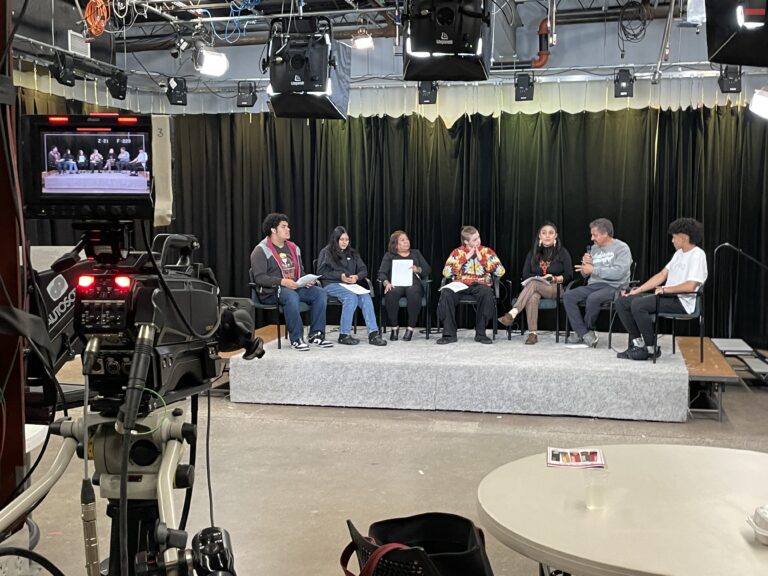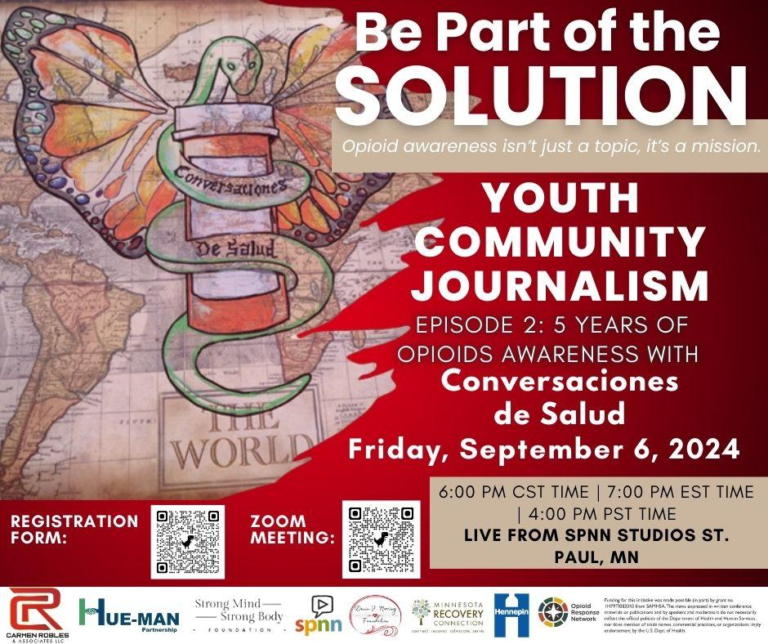How Life Stories Create Community Solutions
Every challenge is an opportunity.
This powerful episode of “Youth Community Journalism” explores how life’s biggest challenges can spark our greatest growth. Through heartfelt storytelling and intergenerational dialogue, we hear from community changemakers who’ve turned adversity into action and life stories into lasting impact.
Youth Community Journalism — Episode 10: How We Tell More Solutions Stories
Guests
*Pamela Barragan, retired deputy chief, community engagement division, Saint Paul Police Department
*Dr. Dziwe Ntaba, emergency room doctor at Fairview, assistant professor in Department of Emergency Medicine at University of Minnesota, Masonic Institute for the Developing Brain
*Manu M. Lewis, community builder and restorative practices leader, ManUCan Consulting
Together with our youth journalists, co-hosts ages 16 (Jesus Rojas) and 13 (Yareli Peña), and a 10-year-old technical director (Cal Ortiz) behind the scenes in the control room, they reflect on the struggles that shaped them, the wisdom gained along the way, and how personal stories can help create real community solutions.
This episode is about more than overcoming obstacles. It’s about building a better future through empathy, storytelling, and community solutions journalism.
“I’m a restorative practitioner so I know that circles healing circles always benefit and uplift the culture of the people,” said Manu Lewis. “So I’m a big supporter of circles, healing circles, community circles, because that’s a way of reintroducing or welcoming people into our communities but also creating healthy spaces where people can go and process. People can go and talk. I think in every community where there’s circles going on you have healing, you have personal healing, you have community healing, which is very important. For me, as a restorative practitioner, circles don’t cure all, but they definitely bring love to most. So I would advise circles. Just really how can we create circles within our communities to invite the elders and invite the young people out, so we can be in the same space to know more about each other and really share those life experiences.”
“I think especially for our youth, that you’re listening and you’re in this kind of setting, you’re already setting yourself up for success,” said Pamela Barragan. “That means that you have already changed the way in your mind of how you approach things. So for your listeners, and for the two hosts that we have here, I’m very proud of you because now you’re setting yourself apart to build into your own talents and to learn other things. So you will be a much better person, a much better student, because you are putting the work into it. We all have challenges. We are not perfect, and that is OK, right? But you need to know what are your strengths and build into them and change your mindset and be very intentional. Sometimes, we are not intentional, and we think life happens. So oh well, you know, it just happens. But yeah, some things happen, but then how you react to those things, how you act accordingly. That is what sets you apart. If you start thinking about, this is a challenge I’m struggling with, this is what I can learn from this, it is going to help you to switch that in your mind, that, OK, I’m going to do something about it. And if you don’t know what to do about it, find somebody that you trust, an adult, a mentor, somebody that you can go to school, or somebody that’s in your group that you can go and say you know I’m struggling with this, how do I do that right, how do I change. I think a lot of the youth think that there’s nobody there, and there’s no hope, that there’s people who don’t care. But that’s not true because you have a program like this, a setting like this, that is set up for you to succeed. You have people here that we never met, but we’re happy to be here to share our stories because we want our youth to succeed. So I think if you do that, as switching your mind, and also taking advantage of what is your circle, you’ll you’ll be able to do that.”
“What you just described, what you just outlined, is a foundational principle in psychology, something called cognitive behavioral therapy,” said Dr. Dziwe Ntaba. “And it basically deals with the stories that we tell ourselves under stress or uncertainty. The people who struggle with depression or anxiety oftentimes will tell themselves negatively reinforcing stories, and it might be something they heard growing up. Or negativity from wherever. If that is amplified through the stories that we tell ourselves, then that drives this kind of vicious cycle. But remembering that we can tell ourselves, even if we don’t believe it, we can tell ourselves a different story, make that switch, kind of, you know, fake it till you make it type of thing, and then we’re no longer trying to hide or cower away from stress. If you’re telling yourself a different story, then you’re open to opportunities and the same thing going on in your brain that’s causing stress is the same kind of hormonal basis of excitement. So rather than being afraid, you can very easily pivot toward being excited. Athletes do that all the time. If they’re stressed out, they’re just telling themselves those stories, their positive visualization. I’m going to make that basket. And then that stress hormone becomes an advantage rather than something that can be harmful.”
Watch how youth and community voices are rewriting the narrative and showing us how to turn life lessons into community strength.
The idea for this show came from one of the youth on the youth community journalism team at the Youth Community Journalism Institute.
“Life stories have a unique ability to inspire us. They remind us that, even when things don’t go as planned, there is always an opportunity to change, improve, and keep fighting for our dreams. They push us to value what we have achieved, to appreciate what we possess, and to be grateful for every step we take. In short, life stories are the best topic because they unite us, teach us, and give us the courage to continue. They show us that, no matter the obstacles, we can always find beauty and purpose in our own journey. What makes life stories so impactful is that, beyond great successes, it is the small everyday battles that truly shape us. They teach us to see difficult moments as opportunities for growth and to realize that, even when everything seems tough, there’s always something worth moving forward for. Additionally, by learning about the experiences of others, we can develop greater empathy and understanding, recognizing that, even though our experiences may be different, we all share similar emotions and aspirations. Life stories are truly amazing because each one is unique and has the power to connect us deeply with others. Every person walks their own path, facing challenges, celebrating achievements, and living complex moments. What’s wonderful about these stories is that, by hearing what others have lived through, we can find lessons on how to be resilient, how to overcome adversity, and how to find strength in the darkest times. When we share and listen to life stories, we realize that our struggles are not exclusive. we all, at some point, go through tough situations, and the important thing is to keep moving forward.”
📍 This show was produced by the Strong Mind Strong Body Foundation‘s Youth Community Journalism Institute at SPEAK MPLS, in collaboration with Conversaciones de Salud.
Support the Strong Mind Strong Body Foundation’s Youth Community Journalism Institute. The Strong Mind Strong Body Foundation is a nonprofit 501(c)(3) private foundation. All donations are tax-deductible. Any donation, big or small, is appreciated. You can make a donation here.
#YouthVoices #SolutionsJournalism #Resilience #CommunityStories #LifeLessons #YouthMedia #CommunityHealing
